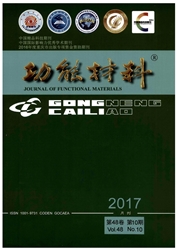

 中文摘要:
中文摘要:
基于Maxwell电磁理论中电解质悬浮液中粒子质量分数和电导率之间的关系,提出了一种判定纳米流体悬浮稳定性的方法,并进行了实验验证。实验中,采用"两步法"经超声振荡制备了CuO/去离子水纳米流体。利用电导率仪测量了不同质量分数时纳米流体的电导率,建立了质量分数与电导率的关系,同时研究了温度对电导率的影响。结果表明电导率随着颗粒质量分数的增加而增加,随着质量分数的减小而减小;随着温度的增长,电导率只有微小变化,可以忽略温度对电导率的影响。
 英文摘要:
英文摘要:
This paper presents a method to determine the nanofluid stability based on Maxwell electromagnetic theory of the relationship between particle mass fraction and conductivity in suspension, and validates it by ex- periment. In the experiment, nanofluid consisting of CuO nanoparticles and deionized water is made by ultra- sonic vibration. It measures the nanofluid conductivity and studies the effects of temperature on nanofluid con duetivity in the experiment. At last it obtained the relationship between mass fraction and conductivity. The re suit shows that, conductivity increase with the increase of mass fraction, nanofluid conductivity only have tiny change with temperature, the effects of temperature on nanofluid conductivity can be neglected.
 同期刊论文项目
同期刊论文项目
 同项目期刊论文
同项目期刊论文
 期刊信息
期刊信息
